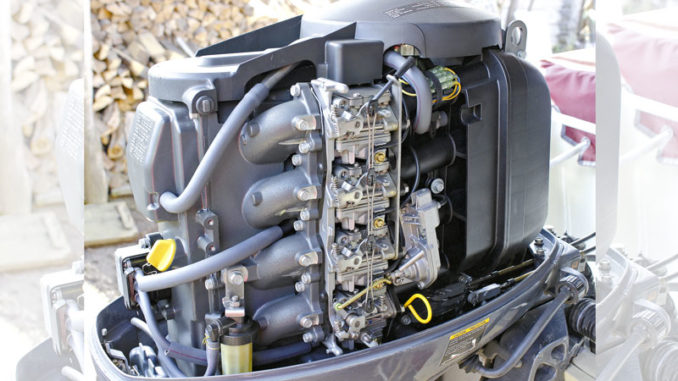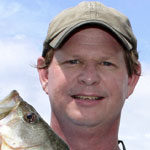
Problems with your outboard motor won’t pop up in spring if you prevent them after fall fishing ends.
Some anglers in the Carolinas fish year-round. Others put their boats away once the weather cools, opting to wait for spring to get on the water again.
If you’re in that group, you want to put your boat away properly so that when fishing fever hits in spring, you can get on the water without the trouble that many boaters commonly experience after their boat has been sitting for a spell.
One of the biggest mistakes made by boaters is keeping old gas in their outboard motor, gas tank and fuel line. That’s a problem that will surely raise its head after a few months. It’s easy to fix right now, but it won’t be so easy in the spring after the damage has been done.
Add a fuel stabilizer to their gas tank when winter comes. Make sure you crank the engine and let it run long enough that the stabilizer gets into your fuel lines and into the outboard motor.
Next, drain your tank and fuel lines. Use that gas in lawn equipment, a generator or anything else you’ll be using soon. When gas sits for several months, it will get waterlogged and cause stalling and other problems. It’s the No. 1 cause of issues to outboards that have been sitting for a while, according to John Long, master outboard technician and owner of East Columbia (S.C.) Sports Shop (803-776-8320).
Fight the cold
Even though most of our winter weather is fairly mild in the Carolinas, freezing temperatures make appearances from time to time, so we definitely want to remove any water in our outboard motors. Usually, tilting the motor all the way down is enough to drain excess water and ensure nothing in the motor freezes. You may also flush your engine with antifreeze.
Fogging your engine is also an important step before storing it. This may sound complicated, but all it takes is a spray can of fogging oil. Check your outboard manual to see what type is recommended. Remove the spark plugs, spray fogging oil into the spark-plug holes, then replace the spark plugs. This will protected your pistons from moisture. Disconnect the spark plug wires to lessen the chance of any corrosion forming.
Go ahead and change your outboard motor oil now
It’s a good idea to change your outboard’s oil before storing. This will get rid of any water that may have gotten in before it has time to cause problems. And when spring arrives, you’ll know your oil level and its quality are top notch.
You’ll also want to disconnect your batteries and store them in a clean, dry area. It’s a good idea to check on them periodically throughout the winter to keep them fully charged. And it’s also a good time to clean any corrosion from battery posts and the boat’s wiring. Spraying any exposed terminals and connection blocks with moisture-displacing lubricants like Corrosion X or WD-40 is another good step.
Before you store your boat, it’s a good time to lubricate the steering mechanism and any other areas that require lubrication. Give the boat a thorough inspection and treat any areas with signs of rust or corrosion. Washing the boat and removing any gunk or slime now can go a long way to keeping your boat looking great.
Find a parking place
Where will you park your boat for the winter? It’s best to keep the tires on a solid surface that doesn’t retain moisture. Parking on bare dirt is a bad idea. Ground moisture will cause the trailer tires to break down prematurely, especially if they sit in pooled rainwater. Parking on level concrete or asphalt is better than on grass. And even on concrete, parking with the tires on treated wooden planks or some other moisture barrier will help even more.
It’s easy to think nothing can go wrong while your boat is parked for a few months, but without taking these steps, you can find yourself frustrated or even stranded on the water once you take your first trip in the spring.




Be the first to comment